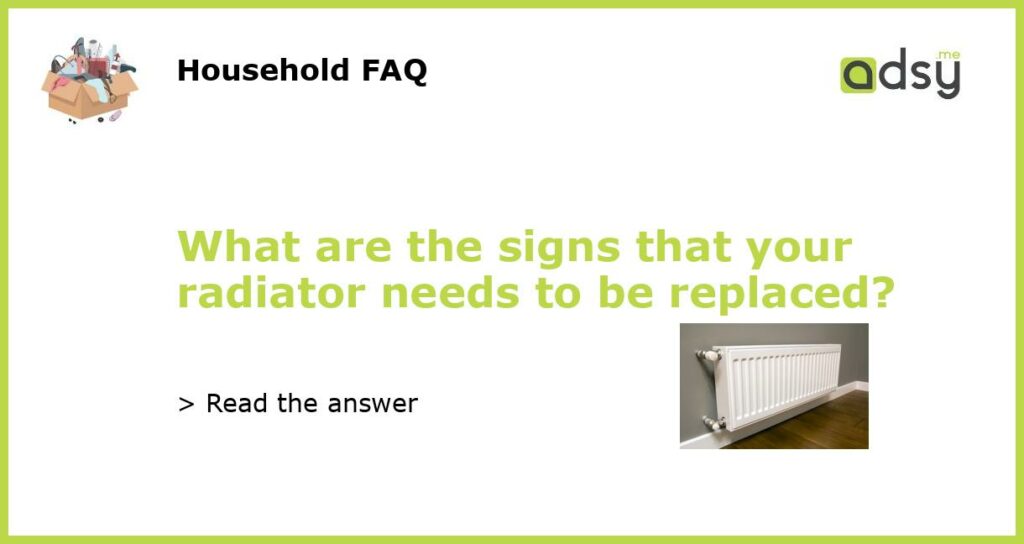The radiator is leaking
If you notice puddles of coolant under your car or find that the coolant level is constantly low, it could be a sign that your radiator is leaking. Over time, the metal in a radiator can corrode and develop small leaks, which will eventually worsen. A leaking radiator not only leads to inefficient cooling but can also cause engine damage if left unchecked. If you suspect a leak, it’s important to have the radiator inspected and possibly replaced.
The coolant is discolored or has a foul smell
Engine coolant typically has a sweet smell and a bright color, usually green or pink. If you notice that the coolant is dark or has a foul smell, it could be an indication that your radiator is corroding on the inside, or that there is a buildup of rust and debris. In either case, it’s best to have the radiator inspected and replaced if necessary to prevent engine damage.
The engine is overheating
If your engine is regularly running hot despite no change in driving conditions, it could be a radiator problem. Overheating usually occurs when the coolant is not circulating properly or when there is an issue with the radiator fan. While there might be other reasons behind the overheating, a faulty radiator is often the culprit. In such situations, ensure you take your car to a mechanic for inspection and repair.
The radiator has physical damage
Sometimes, accidents can cause physical damage to the radiator, resulting in leaks or reduced cooling capacity. You may notice bent fins, cracks, or punctures in the radiator if it has sustained damage. In such cases, inspecting and repairing the radiator may not be possible, and replacing it may become necessary.
The radiator is old and worn out
While radiators are engineered to last for several years, time will eventually take its toll. As your car gets older and accumulates more miles, the radiator will slowly wear out due to natural corrosion and deterioration. If your car is over 10 years old and has never had the radiator replaced, it may be time for a new one. It’s also important to note that high mileage or cars driven in extreme weather conditions may wear out a radiator faster, meaning more frequent replacement intervals are necessary.






